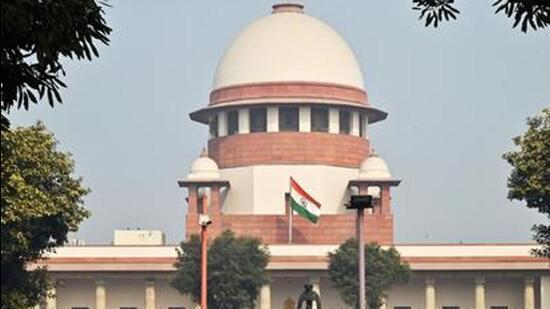
Title: Calling someone ‘Miyan-Tiyan’ & ‘Pakistani’ not an offence: Supreme Court
The recent verdict by the Supreme Court of India has sparked a heated debate on the limits of freedom of speech in the country. In a case that has raised concerns about religious sensitivities, the apex court has ruled that using derogatory terms like “Miyan-Tiyan” and “Pakistani” does not constitute a criminal offence.
The case in question was filed against an 80-year-old man from Jharkhand who was accused of hurling abuses at an Urdu translator. The translator, who was working on a project, claimed that the elderly man used derogatory language against him, including calling him “Miyan-Tiyan” and “Pakistani”. The incident led to a complaint being filed against the accused, which was taken up by the Supreme Court.
In its ruling, the Supreme Court observed that while using such terms may be in poor taste, it does not amount to hurting the religious sentiments of the individual. The court’s decision has sparked a lively debate on the limits of freedom of speech in India, with many arguing that such language is inherently offensive and should be punishable.
However, others have argued that the court’s decision is a step in the right direction, as it recognizes the importance of balancing individual freedoms with the need to avoid offending religious sentiments. The use of derogatory language, they argue, is a matter of personal taste and should not be criminalized.
The issue of religious sensitivities is a complex one in India, where there is a diverse range of religious beliefs and practices. The country has a long history of communal tensions and conflicts, and the use of derogatory language can often be a trigger for these conflicts.
However, some argue that the court’s decision is overly broad, and that it may embolden individuals to use offensive language with impunity. The use of derogatory terms like “Miyan-Tiyan” and “Pakistani” can be deeply offensive and hurtful, and should be recognized as such.
The court’s decision has also sparked concerns about the impact it may have on interfaith relations in the country. Many fear that the decision may create a sense of licence for individuals to use offensive language, which could exacerbate existing tensions between different religious communities.
On the other hand, others argue that the court’s decision is a welcome step towards promoting greater tolerance and understanding between different religious communities. By recognizing that the use of derogatory language is not necessarily a criminal offence, the court is sending a message that individuals should focus on promoting greater understanding and respect for each other’s beliefs and practices.
In conclusion, the Supreme Court’s decision to rule that calling someone “Miyan-Tiyan” and “Pakistani” is not an offence is a complex issue that has sparked a lively debate in India. While some argue that the decision is a step in the right direction, others argue that it may embolden individuals to use offensive language with impunity. Ultimately, the decision highlights the need for greater tolerance and understanding between different religious communities in India, and the importance of balancing individual freedoms with the need to avoid offending religious sentiments.






